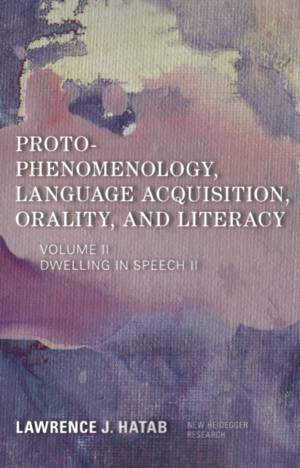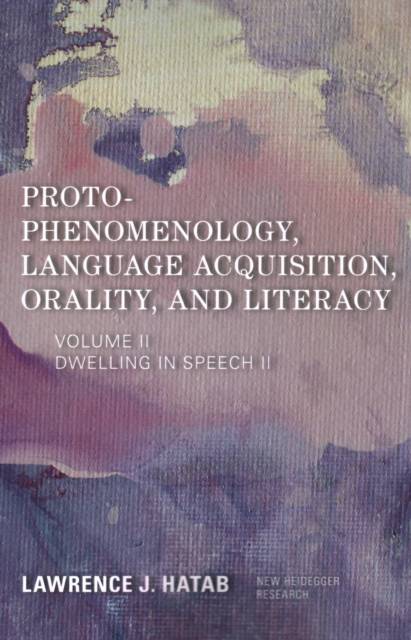
- Retrait gratuit dans votre magasin Club
- 7.000.000 titres dans notre catalogue
- Payer en toute sécurité
- Toujours un magasin près de chez vous
- Retrait gratuit dans votre magasin Club
- 7.000.000 titres dans notre catalogue
- Payer en toute sécurité
- Toujours un magasin près de chez vous
Proto-Phenomenology, Language Acquisition, Orality and Literacy
Dwelling in Speech II
Lawrence J HatabDescription
Through his innovative study of language, noted Heidegger scholar Lawrence Hatab offers a proto-phenomenological account of the lived world, the "first" world of factical life, where pre-reflective, immediate disclosiveness precedes and makes possible representational models of language. Common distinctions between mind and world, fact and value, cognition and affect miss the meaning-laden dimension of embodied, practical existence, where language and life are a matter of "dwelling in speech." In this second volume, Hatab supplements and fortifies his initial analysis by offering a detailed treatment of child development and language acquisition, which exhibit a proto-phenomenological world in the making. He then takes up an in-depth study of the differences between oral and written language (particularly in the ancient Greek world) and how the history of alphabetic literacy shows why Western philosophy came to emphasize objective, representational models of cognition and language, which conceal and pass over the presentational domain of dwelling in speech. Such a study offers significant new angles on the nature of philosophy and language.
Spécifications
Parties prenantes
- Auteur(s) :
- Editeur:
Contenu
- Nombre de pages :
- 328
- Langue:
- Anglais
- Collection :
Caractéristiques
- EAN:
- 9781538148068
- Date de parution :
- 07-03-22
- Format:
- Livre broché
- Format numérique:
- Trade paperback (VS)
- Dimensions :
- 152 mm x 229 mm
- Poids :
- 480 g







